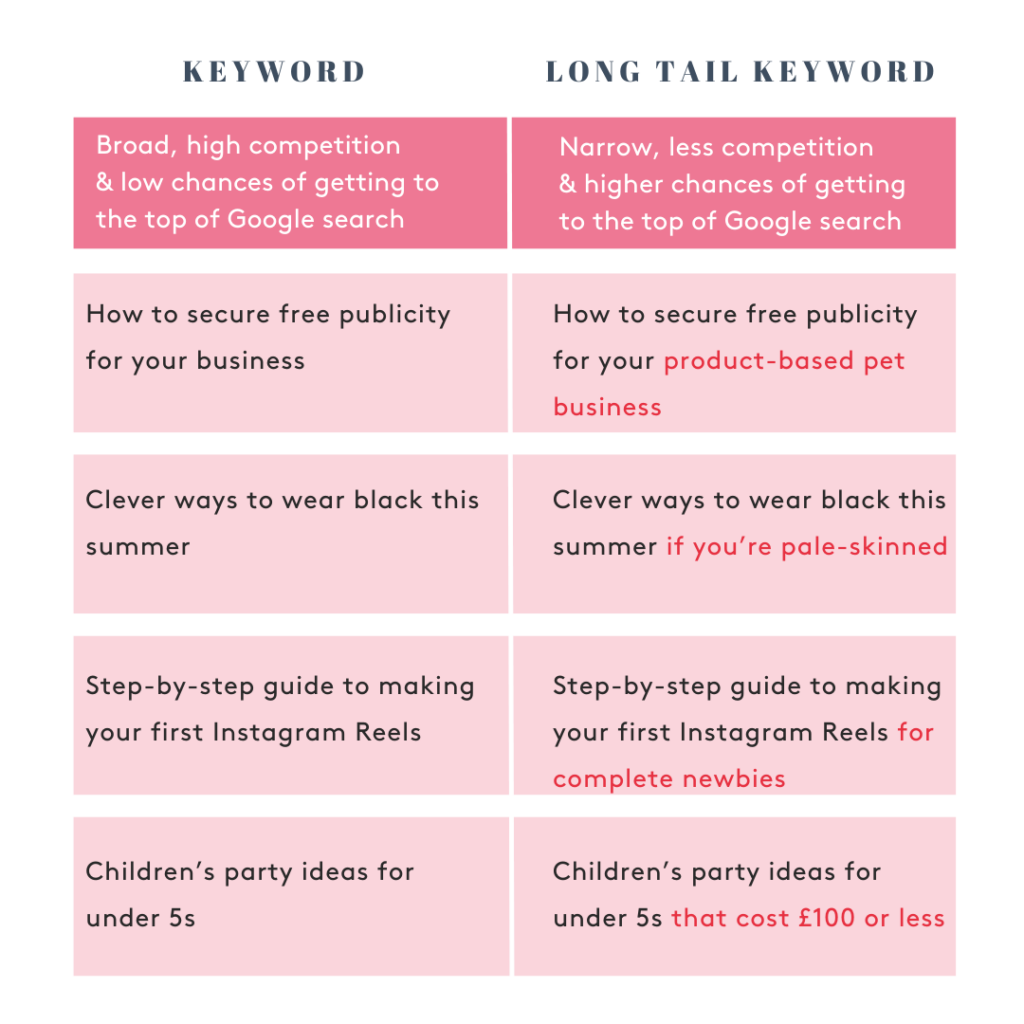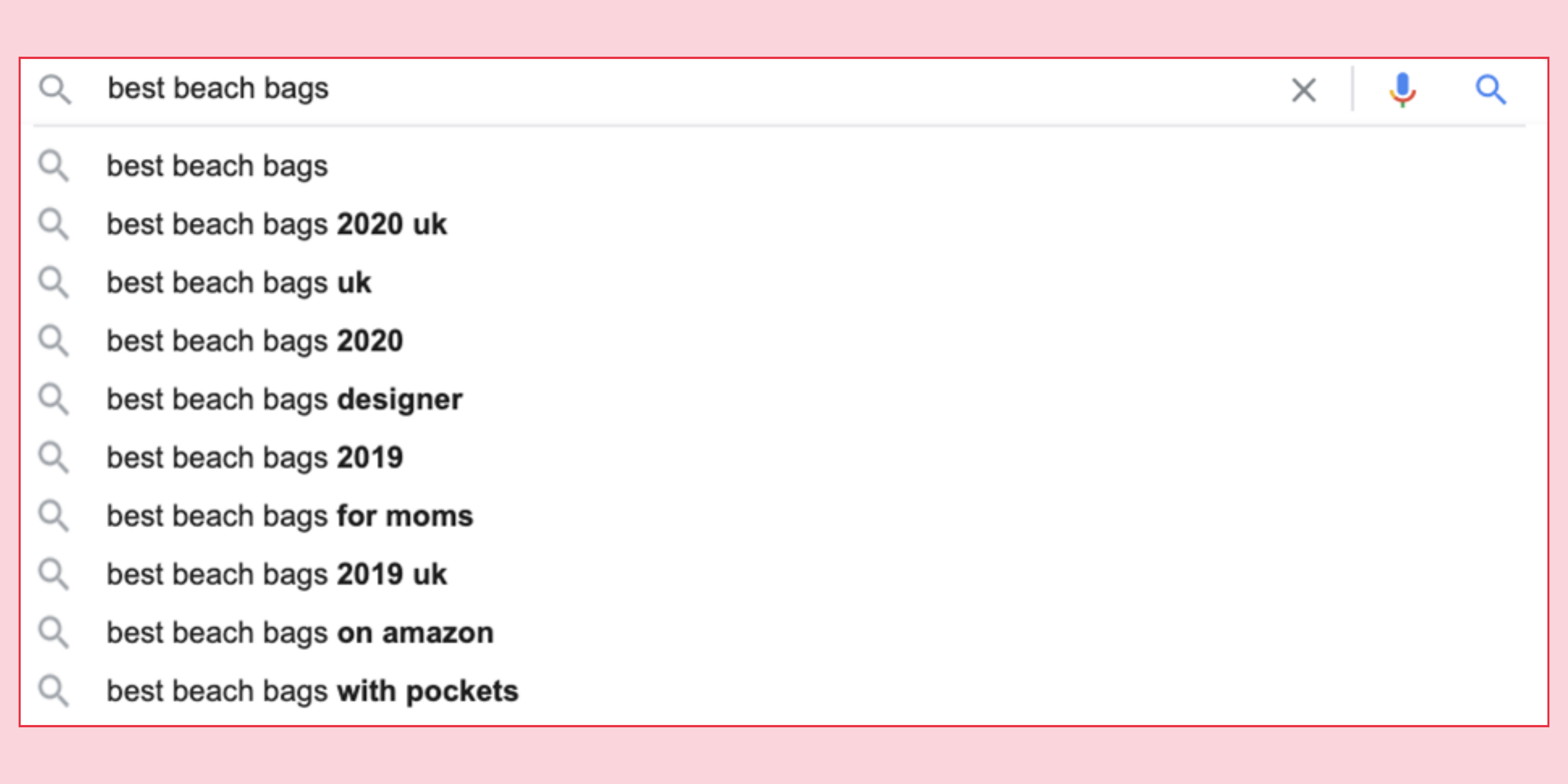
SEO & blogging: what you need to know as a business owner
July 5, 2022
Do you want to increase the chances of your blog content being found in Google?

Then you will need to find out what your ideal customers/clients are searching for.
In this episode of the Courageous Content podcast, I’ll share what you need to know about SEO and keyword research – at least until you’re blogging regularly.
Here’s what I cover:
If you want to increase the chances of your blog content being found in Google, you may want to find out more about SEO (search engine optimisation).
A key part of this is keyword research i.e. finding out what words/phrases your ideal customers/clients are searching for so you can:
(a) choose the most effective blog topics
(b) choose the best blog titles.
Which is often referred to as keyword research.
I’m not a big fan of keyword research as an activity (certainly for small business owners) because there is a danger of getting so obsessed with keyword tools – that you forget to use the best SEO tool you have – your understanding of your ideal customers/clients (along with your common sense).
Keyword research can help optimise your content i.e. increase the chances it will be found in Google. But if you don’t understand your ideal customers/clients – and their problems/challenges – you won’t even know where to start.
This why I would recommend making a list of blog topics/titles first – then using keyword research/tools to refine your topics
More on how to do keyword research coming up. But first…a word about something important.
Long tail keywords
One thing you DO need to understand (even if you don’t do any keyword research) is that the more specific your blog titles the better – simply because there will be less competition in Google.
Let me show you what I mean with some examples.

If you’re not sure how to make your topic more specific, Google’s autocomplete (aka the search box) is a fantastic hack. Start typing in your topic title and take note of the suggestions that come up under the search box — that’ll give you a great idea of the kinds of things that people are searching for relating to that subject. You can apply the same trick to Youtube and Pinterest too.

Other keyword hacks
If Google autocomplete isn’t giving you what you want you could try looking for inspiration in your industry’s trade publications. You could also head over to Amazon and look at books relating to your industry (chapter titles can be a great source of topic keywords), or have a quick look at your competitors’ sites for inspiration too.
Keyword tools
Keywords Everywhere — Type in your chosen phrase and this nifty tool will tell you how many people are searching for that particular phrase so you can determine whether it’s going to be too popular a search term.
Answer The Public — Key in your topic and you’ll find a list of related questions that people are asking about that particular subject.
Google Ads — Enter your keyword and let the price be your guide: the higher cost per click, the more popular the search term is likely to be.
Keyword Finder — This tool gives you really in depth information on how easy it’ll be to rank for your chosen phrase and shows you the top 10 pages ranking for that term. It even gives you some alternative suggestions, again showing you the popularity of each phrase.
But seriously, if you’re yet to establish a regular blogging habit, I really would recommend focusing on understanding your customers/clients problems – and not worrying too much about keyword research.
If you’d like to save time on creating blog content, you should absolutely invest in my Courageous Blog Content Kit. More on what it contains HERE.
You May also like

Useful Links
Janet Murray
- Website
- TikTok
- Janet Murray’s Courageous Content Live event
- Janet Murray's Courageous Blog Content Kit
- Save £30 on my Courageous Email Lead Magnet Content Kit using the code MAGNET67.
- Save £30 on my Business Basics Content Kit using the code PODCAST67.
- Save £30 on my Courageous Launch Content Kit using the code PODCAST67.
- Janet Murray’s FREE Ultimate Course Launch Checklist




